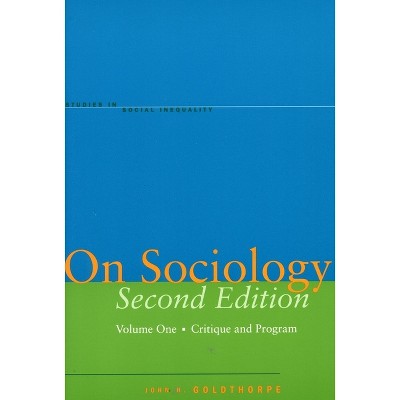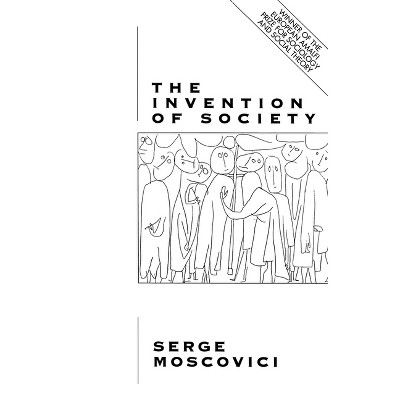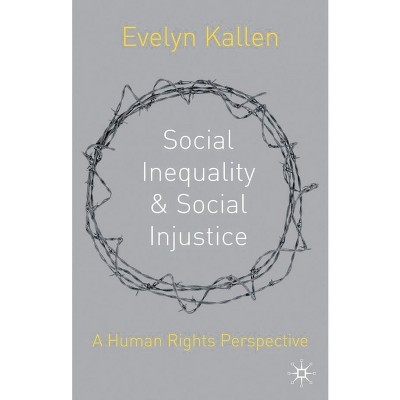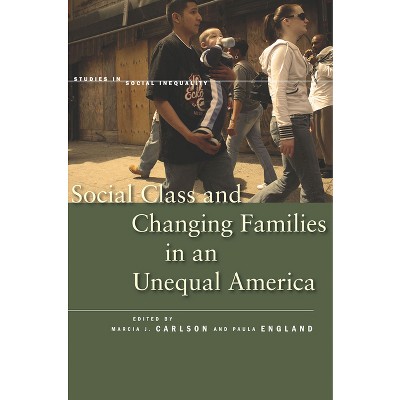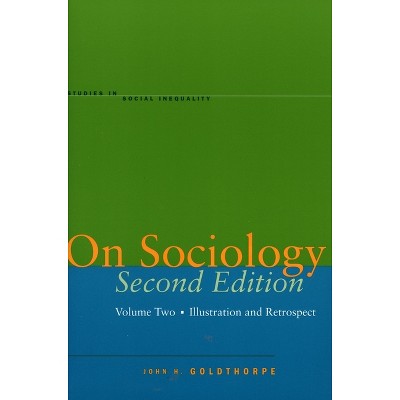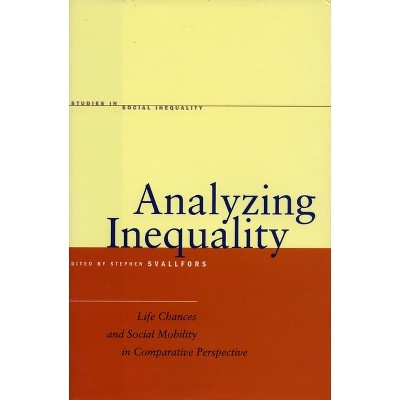The Classless Society - (Studies in Social Inequality) by Paul W Kingston (Paperback)

About this item
Highlights
- Are there classes in America?
- About the Author: Paul Kingston is Associate Professor of Sociology at the University of Virginia.
- 280 Pages
- Social Science, Sociology
- Series Name: Studies in Social Inequality
Description
About the Book
Are there classes in America? In The Classless Society Paul Kingston forcefully answers no. Challenging a long-standing intellectual tradition of class analysis recently revitalized by Erik Olin Wright and John Goldthorpe, and insisting on a realist conception of class, Kingston argues that presumed "classes" do not significantly share distinct, life-defining experiences.Book Synopsis
Are there classes in America? In The Classless Society Paul Kingston forcefully answers no.
This book directly challenges a long-standing intellectual tradition of class analysis, recently revitalized by such prominent scholars as Erik Olin Wright and John Goldthorpe. Insisting on a realist conception of class, Kingston argues that presumed "classes" do not significantly share distinct, life-defining experiences.
Individual chapters assess the extent of class structuration in five dimensions of life: mobility (how demographically cohesive are classes?), interaction patterns (do classes exist as communal groups?), cultural orientation (are there class cultures, as Bourdieu and his followers maintain?), class sentiment (to what extent do objective position and subjective sentiments align?), and political orientations (do classes represent distinct political forces?). This broad assessment is the basis for Kingston's conclusion that classes do not exist in America in any meaningful way.
The Classless Society analyzes prominent general "maps" of the American class structure, as well as the less-studied extremes of socioeconomic position ("Lives of the Rich and Poor"), the alleged emergence of post-industrial classes (the "New Class" and the "McProletariat"), and class structuration in other societies ("American Unexceptionalism").
Kingston rigorously addresses the question, "How would you recognize a class if you saw one?" thus establishing clear grounds for engaging the issue. He relates the findings and methods of the best contemporary research in substantial detail, allowing the reader to assess the book's conclusions from a thorough evidentiary base.
From the Back Cover
Are there classes in America? In The Classless Society Paul Kingston forcefully answers no.This book directly challenges a long-standing intellectual tradition of class analysis, recently revitalized by such prominent scholars as Erik Olin Wright and John Goldthorpe. Insisting on a realist conception of class, Kingston argues that presumed "classes" do not significantly share distinct, life-defining experiences.
Individual chapters assess the extent of class structuration in five dimensions of life: mobility (how demographically cohesive are classes?), interaction patterns (do classes exist as communal groups?), cultural orientation (are there class cultures, as Bourdieu and his followers maintain?), class sentiment (to what extent do objective position and subjective sentiments align?), and political orientations (do classes represent distinct political forces?). This broad assessment is the basis for Kingston's conclusion that classes do not exist in America in any meaningful way.
The Classless Society analyzes prominent general "maps" of the American class structure, as well as the less-studied extremes of socioeconomic position ("Lives of the Rich and Poor"), the alleged emergence of post-industrial classes (the "New Class" and the "McProletariat"), and class structuration in other societies ("American Unexceptionalism").
Kingston rigorously addresses the question, "How would you recognize a class if you saw one?" thus establishing clear grounds for engaging the issue. He relates the findings and methods of the best contemporary research in substantial detail, allowing the reader to assess the book's conclusions from a thorough evidentiary base.
About the Author
Paul Kingston is Associate Professor of Sociology at the University of Virginia. He is the author, most recently, of The Sociology of Public Issues (with Steven Nock).Shipping details
Return details
Trending Non-Fiction






